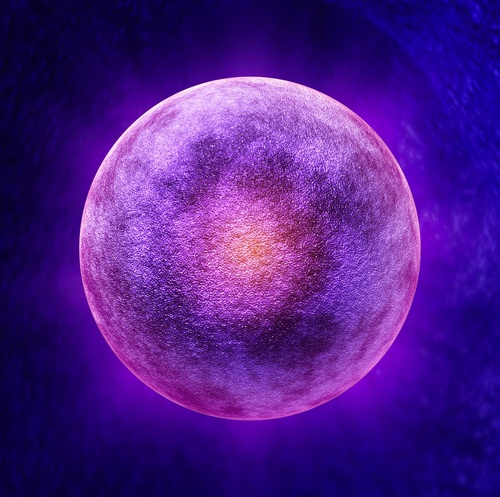
Many young women worry that their biological clock is counting down and feel increasing pressure to have a baby before time runs out. It is true that waiting longer has risks. There is no technology in the world which can completely stop the march of time, but thanks to cutting-edge fertility medicine, we are now able to press “pause” on some of time’s consequences. The main age-related fertility problems are associated with the way a woman’s egg quality and quantity decreases as she gets older, but thanks to the development of specialized cryo-vitrification (flash freezing) techniques, we can now preserve a woman’s eggs without damaging them, and store them for up to 10 years without affecting their quality. There are as many reasons to consider fertility preservation as there are women considering the procedure, but no matter what your circumstances it pays to understand your options.
What is the process of egg freezing?
Egg freezing, formally known as “oocyte cryopreservation,” is a three stage protocol:
- Ovarian stimulation: The first step in a typical egg freezing protocol is a course of fertility medications, which will stimulate the ovaries. These hormones will cause ovulation “on demand” and will encourage the ovaries to release multiple eggs (instead of the usual one.) During this time, you will be monitored with scans to see how the eggs are maturing.
- Egg retrieval: Once ovulation is triggered, you will visit the fertility clinic for egg retrieval. This is a simple outpatient procedure, which is performed under light sedation, so you will not feel any pain.
- Freezing: Immediately after the retrieval, your eggs are taken to the lab, where they are instantly cooled to subzero temperatures.
Typical reasons women may choose to freeze their eggs.
Fertility preservation is a very personal choice, and you don’t need a specific reason to motivate your decision, but there are some common reasons why women decide to freeze their eggs.
- Preserve fertility before cancer therapy/surgery: Some life-saving treatments for cancer and other serious illnesses can have severe impacts on future fertility. Radiation, certain types of chemotherapy and some surgeries can end up damaging or destroying a woman’s eggs. Freezing healthy eggs before treatment may give her the chance to have a baby once she has recovered.
- Family history of early menopause: If women in your family have entered menopause early (for example, in their 40s) there is a chance that you could, too. As menopause approaches, eqq quality quickly begins to drop, and the ovaries gradually stop producing mature eggs at ovulation. If you do not want to be rushed into childbearing ahead of schedule due to the risk of early menopause, egg freezing can help.
- Want to avoid problems associated with older eggs: Women who wait until the end of their fertile years to get pregnant have a higher risk of birth defects, genetic diseases and miscarriage, possibly due in part to the degradation of egg quality over time. “Stopping the clock” on your eggs earlier with cryopreservation can help to mitigate some of these risks.
- Delay childbearing to pursue other goals: Many young women want to continue their education or do not want to take time off at a critical growth point in their careers to have a baby, but they don’t want to risk compromising their fertility by waiting too long. Egg freezing gives them a chance to extend those timelines.
- No partner yet or not in a relationship conducive to childbearing: These days people are meeting and marrying later and later. If you find yourself single during prime childbearing years or if you are in a new relationship which hasn’t yet reached the “having kids together” stage, freezing your eggs can make it possible to have a baby once your circumstances have changed, even if it takes a few years.
When is the best time to consider egg freezing?
You can freeze your eggs at any point during your fertile years, but as you might expect, younger is better. Freezing eggs in your 20s may sound very young, but it offers you the best chance of success. There are strong biological reasons why the overall success rate is higher for women in their mid twenties-early thirties. Fertility begins to decline slowly but surely at age 25, and continues to fall until menopause. The most dramatic dropoff happens at age 35. As you get older, the chances of achieving pregnancy with frozen eggs starts to drop. If you freeze your eggs in your early 30s, you have a 40 to 50 percent chance of achieving pregnancy with those eggs. If you wait until your late 30s, that changes to a 20 to 15 percent chance. Of course, every patient is unique, and your success will depend on your particular ovarian reserve and egg quality at the time of freezing. Women in their 30s are most likely to look into egg freezing, but the average age is getting younger, down from age 38 to age 36.
Why freeze earlier?
- More usable eggs: During your twenties your eggs are in prime condition and the egg count is high, meaning you are likely to get more high-quality eggs for freezing from one cycle. Young eggs also have a higher survival rate through the freezing and thawing process.
- Higher chances of a healthy baby: A woman’s risk of having a baby with genetic defects goes up significantly after age 35. Using younger eggs helps to mitigate this risk.
- Takes the pressure off dating: Having one eye on your biological clock at all times can make dating feel fraught, which isn’t the ideal atmosphere in which to make life-defining choices. By freezing your eggs, you can lower the stakes, relax and let budding relationships develop in their own time.
- Empowering choice: Taking charge of your fertility is a powerful move for any woman. The freedom to create your life and your family on your terms is priceless.
Things to think about when considering fertility preservation.
The potential benefits of freezing your eggs are immense, but before you take the first steps on this journey, there are some things to keep in mind.
- Talk to your fertility specialist about your particular case: The first step is to have a consultation to find out if you are a good candidate for the process: every woman’s body is different. You will need your doctor to assess your ovarian reserve, and the quality and quantity of your eggs. Blood tests are a good start. Your doctor will probably check the levels of two key hormones related to ovulation:
- Anti-mullerian hormone: this substance is produced by early-stage ovarian follicles. Measuring the hormone can help to indicate the size of the remaining egg supply.
- Follicle stimulating hormone (FSH): this substance is produced by the pituitary gland and causes ovarian follicles to mature. High levels of FSH may mean that your body has to work extra-hard to produce eggs, which can indicate low ovarian reserve and/or poor egg quality.
- There are no guarantees in fertility medicine. As much as we’d like to offer solutions which work 100% of the time, the human body is complex, and there is always a chance that you will not be able to get pregnant later in life, even if you’ve frozen your eggs. What we can say is that the earlier you act, the better your chances in the future. It’s also important to note that freezing won't decrease your fertility or negatively impact your chances of conceiving later on.
- Fertility preservation is an investment. Freezing and storing your eggs can be costly and is often not covered by insurance. Its value, however, is becoming increasingly understood, and some companies are beginning to offer it as a benefit: for example, both Facebook and Apple cover the cost of egg freezing for female employees. If you are paying out of pocket, you may want to go with may want to go with more than one cycle to increase your odds. The more eggs you have to work with, the higher your chances of a successful pregnancy later on.
- There is a time commitment involved. Exactly how long the cycle takes will vary, but it is roughly 4-6 weeks from first visit to retrieval. There are only 2 weeks of regular visits, where you’ll have to attend the clinic multiple times a week for ultrasounds.
- The clinic you use matters. With so many choices out there, it’s vital to find the right fertility clinic for your needs. So many factors go into a successful cycle, including the experience of the doctors and staff, the quality of the lab, and the type of procedures and practices they use. Ask plenty of questions, most importantly, has the clinic ever had a successful pregnancy by someone who has used a frozen egg?
At SCRC, you have the benefit of our over 25 years of experience, a team of world-renowned specialists, and a cutting edge fertility laboratory at your disposal. We have worked with many women to preserve their fertility, and we’re always happy to talk through your options. Call us today for an individualized consultation. Life can be uncertain, and the ability to freeze your eggs (and thereby your fertility) for as long as a decade is an opportunity to take back a measure of control.
Share this on social media:





